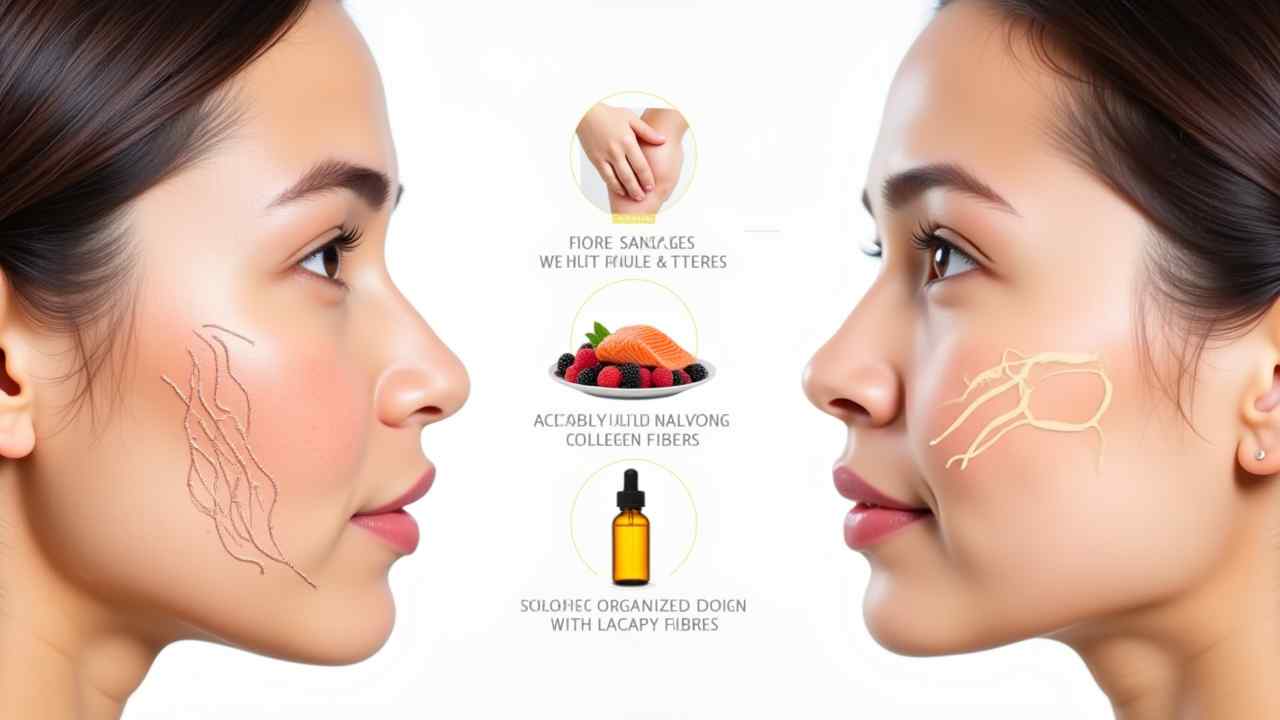
🌿 How to Treat Loose Skin Naturally (5 Science-Backed Methods)
🌿 A Guide on How to Treat Loose Skin Naturally 🌿
As we age or after significant weight loss, our skin can lose its firmness. This is a natural process. It is caused by a decline in collagen and elastin. These are the proteins that keep our skin plump and tight.
Many people wonder how to treat loose skin naturally. They want to avoid invasive procedures. The great news is that you can make a real improvement. A holistic approach can support your skin's health from the inside out.
This guide will explore the five most effective natural strategies. It is a perfect routine to start this autumn. The cooler air is a great reminder to nourish your skin. Let's begin this journey to a firmer complexion. ✅
1. Why is Sun Protection the #1 'Natural' Treatment?
The most powerful natural strategy is actually preventative. The single biggest cause of collagen and elastin breakdown is sun exposure. UV radiation is the primary driver of premature aging and skin laxity. Therefore, protecting your skin is the most crucial step.
You must wear a broad-spectrum sunscreen with at least SPF 30 every single day. This is the best and most proven way to preserve the firmness you already have. It is the foundation upon which all other treatments are built. ☀️
2. Can Facial Massage and Exercises Help?
Yes, this is a fantastic hands-on approach. Regular facial massage can help to stimulate blood circulation. This brings more oxygen and nutrients to your skin cells. It can also help to temporarily tone the underlying facial muscles, giving a more lifted and sculpted appearance.
Use a gentle, upward motion when massaging. A simple tool like a gua sha stone or a jade roller can enhance the experience. Using a nourishing face oil during your massage will also help the tools glide smoothly and provide benefits to the skin.
3. How Do You 'Feed' Your Skin From the Inside?
The quest for how to naturally tighten face skin starts on your plate. Your body needs the right building blocks to create collagen. Focus on a diet rich in:
- Lean Protein: Collagen is a protein. Sources like fish, chicken ("tavuk"), and legumes like lentils ("mercimek") are essential.
- Vitamin C: Your body cannot produce collagen without it. Bell peppers ("biber"), broccoli, and citrus fruits are packed with it.
- Healthy Fats: Fats from sources like avocados, nuts (like walnuts/"ceviz"), and olive oil ("zeytinyağı") support skin health.
- Antioxidants: Berries and leafy greens help protect your skin from damage.
4. What Are the Best Natural Topical Ingredients?
While no cream is a facelift in a bottle, some natural ingredients can support collagen production over time. Look for serums and oils that contain:
- Bakuchiol: This plant-based ingredient is known as a natural retinol alternative. It has been shown to improve fine lines and elasticity without the irritation of traditional retinoids.
- Rosehip Oil: Rich in natural Vitamin A, this oil can help promote skin regeneration and improve texture.
5. Why Are Sleep and Stress Management Crucial?
Your lifestyle habits have a direct impact on your skin's health. During deep sleep, your body goes into repair mode, regenerating cells and producing collagen. Aim for 7-9 hours of quality sleep per night.
Chronic stress is also a major enemy of firm skin. High levels of the stress hormone cortisol can actively break down collagen. Incorporating stress-reducing practices like meditation, deep breathing, or a simple walk in nature is a powerful anti-aging strategy. 🧘♀️